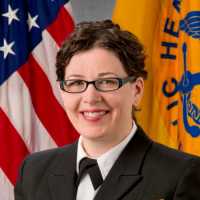09 Oct Antibiotics Prescribed By Dentists May Contribute To C.diff Infections
MedicalResearch.com Interview with:
Stacy Holzbauer, DVM, MPH, DACVPM
CDC Career Epidemiology Field Officer (CEFO)
Commander, USPHS
Minnesota Department of Health
St. Paul, MN
MedicalResearch.com: What is the background for this study?
- Antibiotics are not harmless drugs—Clostridium difficile infection, which can sometimes cause a deadly diarrhea, is a complication of antibiotic use and can occur after even one dose of an antibiotic.
- The Minnesota Department of Health (MDH) is part of the larger Centers for Disease Control and Prevention (CDC) Emerging Infections Program (EIP). The healthcare-associated infection component of CDC’s EIP engages a network of state health departments and their academic medical center partners to help answer critical questions about emerging HAI threats including Clostridium difficile also known as “C. diff.”
- In Minnesota, the majority of C. diff infections occur outside the hospital and are driven by antibiotic use in community or outpatient settings. In addition to routine surveillance data, we interview patients with C. diff who were not hospitalized prior to their infection to identify potential risks for developing C. diff infection, including identifying antibiotics received outside of routine healthcare settings.
- Dentists prescribe approximately 10% of the antibiotics in outpatient settings, which was over 24 million prescriptions in 2013. When asked about their prescribing practices in a 2015 survey with the Minnesota Dental Association, 36% of dentists surveyed prescribed antibiotics for dental conditions that are generally not recommended to receive antibiotics according to American Dental Association (ADA) guidelines.
MedicalResearch.com: What are the main findings?
- Our analysis suggests that antibiotics prescribed by dentists may be contributing to C. diff infections. MDH researchers interviewed 1,626 people with community-associated C. diff between 2009 and 2015. Of those, 926 (57 percent) reported they had been prescribed antibiotics, 136 (15 percent) of those for a dental procedure.
- Of those who had received antibiotics for a dental procedure, 85 percent were prescribed antibiotics only for dental reasons and 34 percent had no mention of antibiotics in their medical charts, illustrating a disconnect between dental and medical care.
- We found that patients who were prescribed antibiotics for dental procedures tended to be older and more likely to receive clindamycin, an antibiotic that is often associated with C. diff infection.
- The primary reasons for antibiotic prescriptions were treatment for tooth infections or abscesses, or prophylaxis for oral surgery or dental cleaning. In many cases, the best treatment for oral infections may not include an antibiotic at all. The ADA does not generally recommended antibiotics prior to dental cleanings or oral surgery, except when certain specific medical conditions are present.
MedicalResearch.com: What should readers take away from your report?
- While this study cannot quantify the national magnitude of C. diff infections related to antibiotics from dental procedures, it does identify that dental prescribing is playing a role in illness.
- Dentists have often been overlooked as major partners in programs that promote appropriate antibiotic use, and it is critical dentists are included in efforts to improve antibiotic prescribing. All prescribers, including dentists, should examine prescribing behaviors for appropriateness.
- Many times, dentists are not aware of the complications that develop from antibiotic use. Better communication is needed between patients, dentists and medical providers.
- During medical visits, patients should mention any dental visits and medications they have taken for dental reasons.
- Doctors should ask patients about dental visits and medications taken for dental reasons during appointments.
- Dentists should encourage patients to let them know if they develop diarrhea following taking antibiotics.
MedicalResearch.com: What recommendations do you have for future research as a result of this study?
- More research is needed nationally to quantify the amount of antibiotic prescribing by dentists for antibiotic prophylaxis versus antibiotic treatment, and further identify the burden of adverse events such a C. diff infections following dental prescribing.
- Despite ADA guidelines, medical providers may ask dentists to prescribe antibiotics prior to invasive dental procedures, especially for patients with joint replacements or a history of congenital heart disease. More research is needed to quantify the risks of adverse events associated with invasive dental procedures with or without the use of antibiotic prophylaxis.
- The ADA has expressed a commitment to and is an active partner in antibiotic stewardship nationally. More research is needed on the best methods to empower dentists to identify inappropriate prescribing and change behavior as well as how to learn about adverse events following their prescribing practices. Recommendations and guidance for alternative treatment options and procedures to consider before prescribing antibiotics could be useful.
MedicalResearch.com: Is there anything else you would like to add?
- The CDC has a printable checklist for antibiotic prescribing in dentistry that can be a useful tool to determine appropriateness. https://www.cdc.gov/getsmart/community/downloads/dental-fact-sheet-final.pdf
- The Minnesota Department of Health also has information for dentists on antibiotic use. (http://www.health.state.mn.us/onehealthabx/dentalabx.pdf ; http://www.health.state.mn.us/onehealthabx/human.html)
No disclosures
MedicalResearch.com: Thank you for your contribution to the MedicalResearch.com community.
Citation:
2017 ID week abstract: Antibiotic Prescribing for Dental Procedures in Community-Associated Clostridium difficile cases, Minnesota, 2009-2015
https://idsa.confex.com/idsa/2017/webprogram/Paper66373.html
Note: Content is Not intended as medical advice. Please consult your health care provider regarding your specific medical condition and questions.
[wysija_form id=”1″]
Last Updated on October 9, 2017 by Marie Benz MD FAAD

